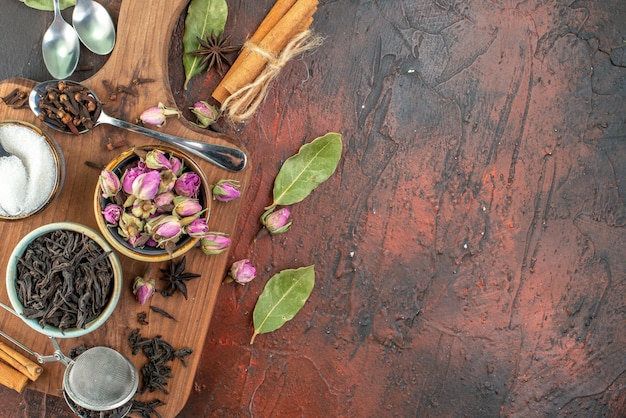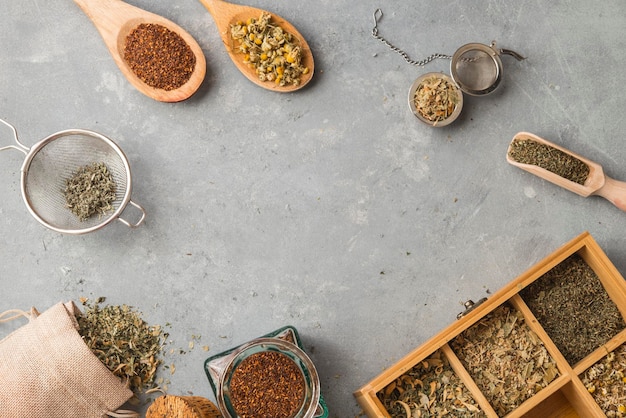Pancreatitis Ayurveda: Natural Treatments for Pancreatic Health

Introduction to Pancreatitis and Ayurveda
Pancreatitis is the inflammation of the pancreas, which is an essential organ responsible for producing digestive enzymes and insulin. Acute or chronic pancreatitis can cause severe pain, digestive issues, and even life-threatening complications. Ayurveda, a holistic healing system, offers natural remedies that aim to reduce inflammation, improve digestion, and restore balance to the body. Ayurvedic treatments for pancreatitis focus on addressing the root causes of inflammation and providing the body with the necessary tools to heal and maintain optimal pancreatic function.
In Ayurveda, pancreatitis is often linked to an imbalance in the Pitta dosha, which governs digestion and metabolism. When Pitta becomes aggravated, it leads to excessive heat in the digestive system, causing inflammation in the pancreas. Ayurvedic treatments for pancreatitis aim to soothe the digestive system, reduce Pitta imbalances, and improve the overall health of the pancreas.
Don't wait or self medicate. Start chat with Doctor NOW
Historical Roots & Ayurvedic Perspective
Ayurvedic texts have long discussed the importance of digestive health and the role of the pancreas in the body’s overall metabolic processes. In Ayurveda, inflammation in the body is seen as an imbalance in the doshas, particularly Pitta, which is responsible for transformation and digestion. When Pitta is aggravated, it can lead to conditions such as gastritis, acid reflux, and pancreatitis. Ayurvedic remedies focus on balancing Pitta, soothing inflammation, and restoring healthy digestive function.
Key Ayurvedic Remedies for Pancreatitis
1. Herbal Remedies for Reducing Inflammation
Several Ayurvedic herbs are known for their anti-inflammatory properties, which can help reduce the swelling and pain associated with pancreatitis:
- Turmeric (Curcuma longa): Turmeric is one of the most potent anti-inflammatory herbs in Ayurveda. It contains curcumin, which has been shown to reduce inflammation and promote healing. Turmeric helps balance Pitta and supports overall digestive health, making it beneficial for individuals suffering from pancreatitis.
- Ginger (Zingiber officinale): Ginger is a well-known digestive aid in Ayurveda and is often used to reduce inflammation and improve circulation. It can help soothe digestive discomfort and support the pancreas by improving digestion and reducing acidity.
- Amla (Emblica officinalis): Amla is a powerful antioxidant and anti-inflammatory herb in Ayurveda that helps strengthen the immune system and soothe Pitta imbalances. It supports the digestive system and promotes detoxification, which can help the pancreas heal.
- Ashwagandha (Withania somnifera): Ashwagandha is an adaptogenic herb that helps reduce stress, balance hormones, and improve overall vitality. It also has anti-inflammatory properties, making it useful for managing inflammation in conditions like pancreatitis.
2. Digestive Health and Detoxification
Ayurvedic treatments for pancreatitis often include detoxification therapies to remove ama (toxins) from the body, which can aggravate inflammation. Detoxifying the digestive system helps improve the health of the pancreas and restore balance to the body.
- Triphala: This traditional Ayurvedic formulation consisting of three fruits (Amla, Haritaki, and Bibhitaki) is often used to promote detoxification, improve digestion, and regulate bowel movements. It helps flush out toxins from the digestive tract, which can reduce the strain on the pancreas.
- Panchakarma: Panchakarma is an Ayurvedic detoxification therapy that involves a series of treatments, including Virechana (therapeutic purgation) and Basti (medicated enema). These therapies are designed to remove accumulated toxins from the body and restore the balance of the doshas, promoting healing in the pancreas and digestive system.
3. Diet and Lifestyle Adjustments
In Ayurveda, a balanced diet and lifestyle are crucial for maintaining pancreatic health. Certain foods and habits can aggravate Pitta, leading to inflammation and digestive issues, while others can help soothe the digestive system and promote healing.
- Cooling Foods: Foods that have a cooling effect on the body are recommended for reducing Pitta. Examples include cucumbers, coconut, leafy greens, and fresh fruits like melons and apples. These foods help soothe the digestive system and reduce inflammation in the pancreas.
- Avoiding Spicy, Oily, and Fried Foods: These foods are known to aggravate Pitta and can contribute to inflammation in the pancreas. It’s important to avoid foods that are heavy, greasy, or overly spicy during recovery from pancreatitis.
- Warm, Light Meals: Ayurveda recommends consuming warm, light meals that are easy to digest, such as soups, broths, and steamed vegetables. This helps ease the digestive process and prevents the pancreas from being overworked.
4. Stress Management and Rest
Since stress can exacerbate Pitta imbalances and contribute to inflammation in the body, stress management is an important aspect of Ayurveda’s approach to managing pancreatitis. Practices like yoga, meditation, and deep-breathing exercises can help calm the mind and soothe Pitta. Adequate rest and sleep are also important for the body’s healing process.
- Yoga: Gentle yoga poses that promote relaxation and improve digestion, such as Savasana (Corpse Pose) and Viparita Karani (Legs Up the Wall Pose), can help reduce stress and support healing. Poses that stimulate the digestive organs, like Bhujangasana (Cobra Pose), can also be beneficial.
- Pranayama: Breathing exercises, or Pranayama, help calm the mind and balance the nervous system. Practices such as Anulom Vilom (Nadi Shodhana) and Bhastrika (Bellows Breath) can reduce stress and help manage Pitta.
How Ayurvedic Treatment Works for Pancreatitis
Ayurvedic treatments for pancreatitis work by restoring balance to the digestive system, reducing inflammation, and promoting detoxification. The use of anti-inflammatory herbs like turmeric, ginger, and amla helps soothe Pitta and reduce the symptoms of pancreatitis. Detoxification therapies such as Triphala and Panchakarma help remove toxins from the body, which can alleviate strain on the pancreas and support its healing. A balanced diet and stress management techniques are also essential components of Ayurvedic treatment for pancreatitis, as they promote overall wellness and support the body’s natural healing abilities.
Choosing the Right Ayurvedic Remedies
When choosing Ayurvedic remedies for pancreatitis, it is important to consult with a qualified Ayurvedic practitioner to ensure that the treatment is suitable for your body’s unique constitution (Prakriti) and health needs. An Ayurvedic professional can recommend the appropriate herbs, supplements, and therapies, as well as provide guidance on lifestyle changes that can further support pancreatic health.
Recommended Dosage & Usage
The dosage of Ayurvedic remedies for pancreatitis depends on the specific herb or formulation being used. Some general recommendations include:
- Turmeric: Take 1/2 teaspoon of turmeric powder daily, mixed with warm water or milk. Alternatively, turmeric supplements can be taken as recommended by your practitioner.
- Ginger: Fresh ginger can be consumed as a tea or taken in capsule form. Typically, 1-2 teaspoons of fresh ginger juice or 1-2 ginger capsules daily can help with inflammation.
- Triphala: Take 1 teaspoon of Triphala powder before bedtime with warm water to promote detoxification and improve digestion.
- Ashwagandha: Take 1/2 teaspoon of ashwagandha powder daily, mixed with warm water or milk, to support stress management and improve vitality.
Always follow the dosage and recommendations provided by your Ayurvedic practitioner to ensure safe and effective treatment.
Potential Side Effects & Precautions
While Ayurvedic remedies for pancreatitis are generally safe, there are some precautions to consider:
- Digestive Discomfort: Some individuals may experience mild digestive upset when starting Ayurvedic treatments, especially during detoxification. It is advisable to begin with a lower dose and gradually increase it as needed.
- Pregnancy & Nursing: Pregnant or nursing women should consult an Ayurvedic practitioner before using certain herbs, as some may not be safe during pregnancy.
- Allergic Reactions: Discontinue use if any allergic reactions, such as rashes or irritation, occur after using herbs or oils.
Frequently Asked Questions for Pancreatitis Ayurveda
How does Ayurveda treat pancreatitis naturally?
Ayurveda treats pancreatitis by reducing inflammation, balancing the Pitta dosha, and supporting the digestive system with anti-inflammatory herbs like turmeric, ginger, and amla. Detoxification therapies, a balanced diet, and stress management techniques are also key components of Ayurvedic treatment.
Can turmeric help in reducing inflammation in pancreatitis?
Yes, turmeric contains curcumin, a powerful anti-inflammatory compound that helps reduce inflammation in the pancreas and supports overall digestive health. Turmeric can be taken daily to soothe inflammation and promote healing.
What dietary changes can help manage pancreatitis in Ayurveda?
In Ayurveda, a diet that includes cooling foods like cucumbers, coconut, and fresh fruits is recommended to reduce Pittaand soothe inflammation. Avoiding spicy, oily, and fried foods is crucial to prevent further irritation of the pancreas.
Is Panchakarma effective for treating pancreatitis?
Yes, Panchakarma is an Ayurvedic detoxification therapy that helps remove toxins from the body, reduce inflammation, and support pancreatic health. Panchakarma therapies like Virechana (purgation) and Basti (medicated enema) can be beneficial in managing pancreatitis.
How long will it take to see results from Ayurvedic treatments for pancreatitis?
Results from Ayurvedic treatments vary depending on the severity of the condition and consistency of treatment. Some individuals may experience relief from symptoms within a few weeks, while others may need several months of consistent treatment to see significant improvements.
Can Ayurveda be used alongside conventional treatments for pancreatitis?
Yes, Ayurvedic treatments can be used alongside conventional treatments for pancreatitis. However, it is important to consult with both your healthcare provider and Ayurvedic practitioner to ensure there are no conflicts between treatments.
What are the potential side effects of using Ayurvedic remedies for pancreatitis?
Most Ayurvedic remedies are safe when used correctly, but some individuals may experience mild digestive discomfort or allergic reactions. It is important to consult an Ayurvedic practitioner before starting treatment, especially for pregnant or nursing women.
Conclusion & Expert Insights
Ayurveda offers a comprehensive approach to managing pancreatitis by addressing the root causes of inflammation and supporting overall digestive health. Through the use of anti-inflammatory herbs, detoxification therapies, and dietary adjustments, Ayurveda helps soothe the pancreas, reduce symptoms, and promote healing. Always consult with a qualified Ayurvedic practitioner to tailor the treatment to your specific health needs and achieve the best results.
References & Further Reading
- Sharma, P.V. (1995). Ayurvedic Healing: A Comprehensive Guide.
- Lad, V. (2002). Ayurveda: The Science of Self-Healing.
- National Institute of Ayurveda:
- Journal of Ayurveda and Integrative Medicine for research articles on pancreatitis and Ayurvedic treatments.
Got any more questions?
Ask Ayurvedic doctor a question and get a consultation online on the problem of your concern in a free or paid mode.
More than 2,000 experienced doctors work and wait for your questions on our site and help users to solve their health problems every day.



